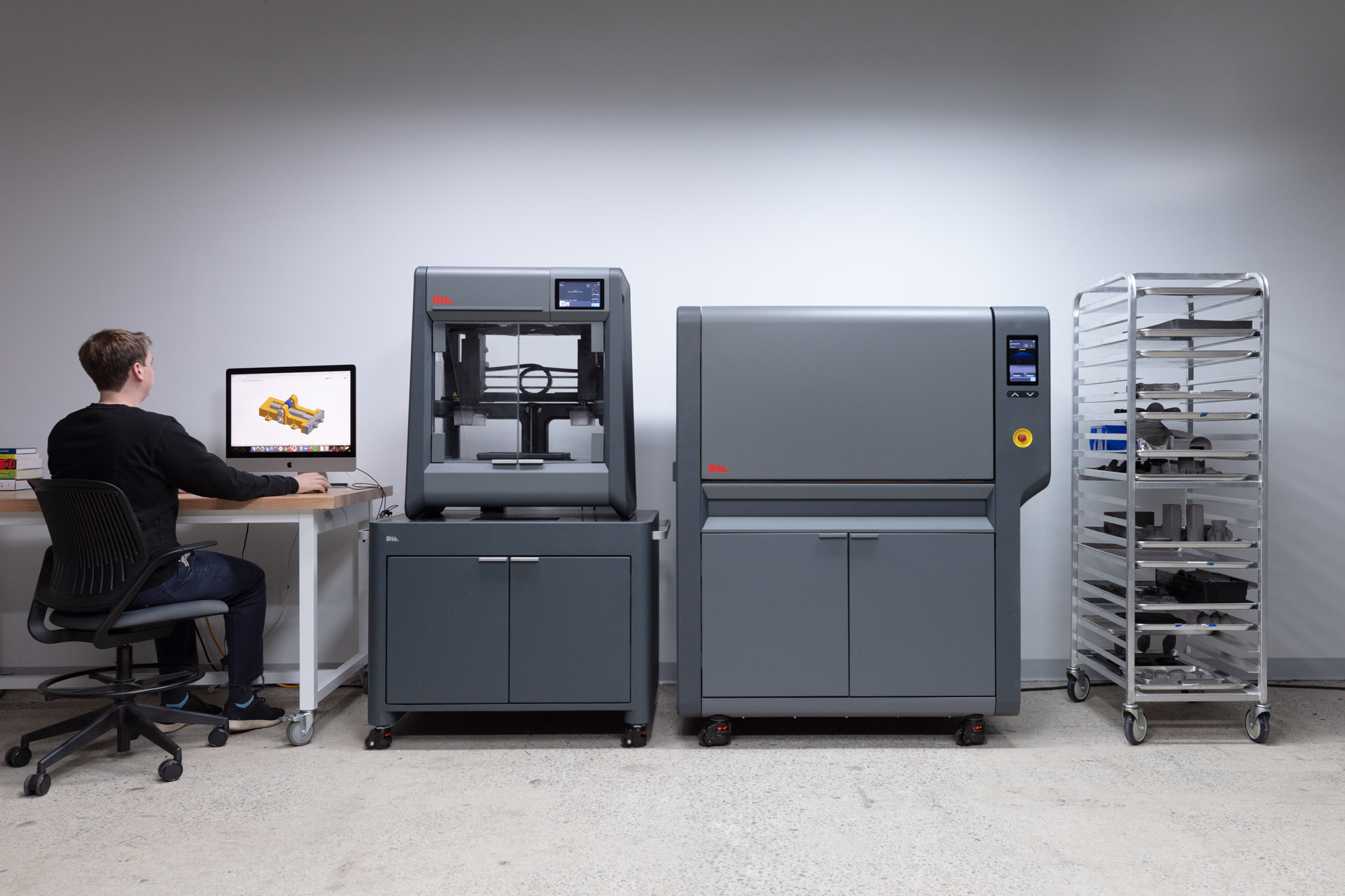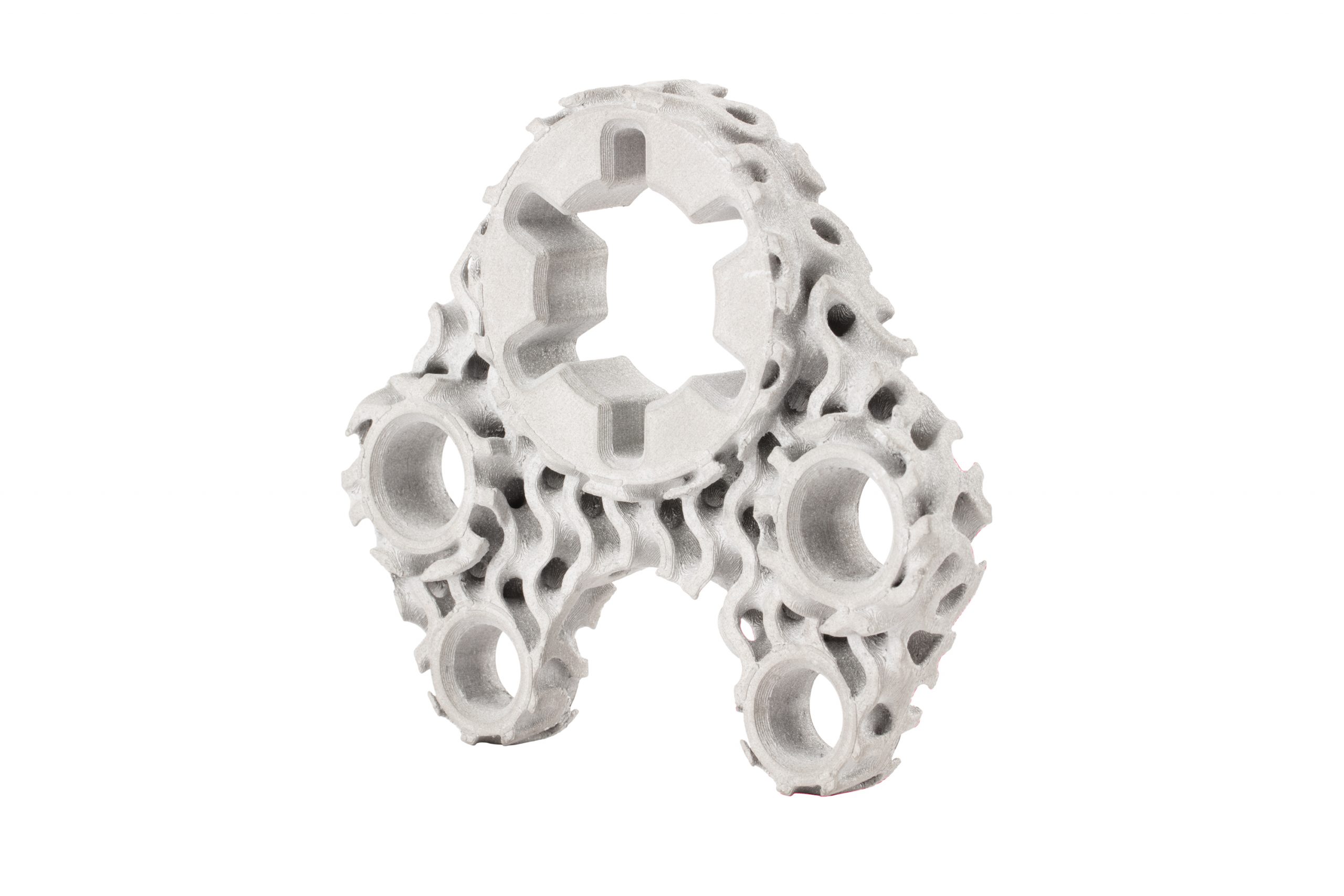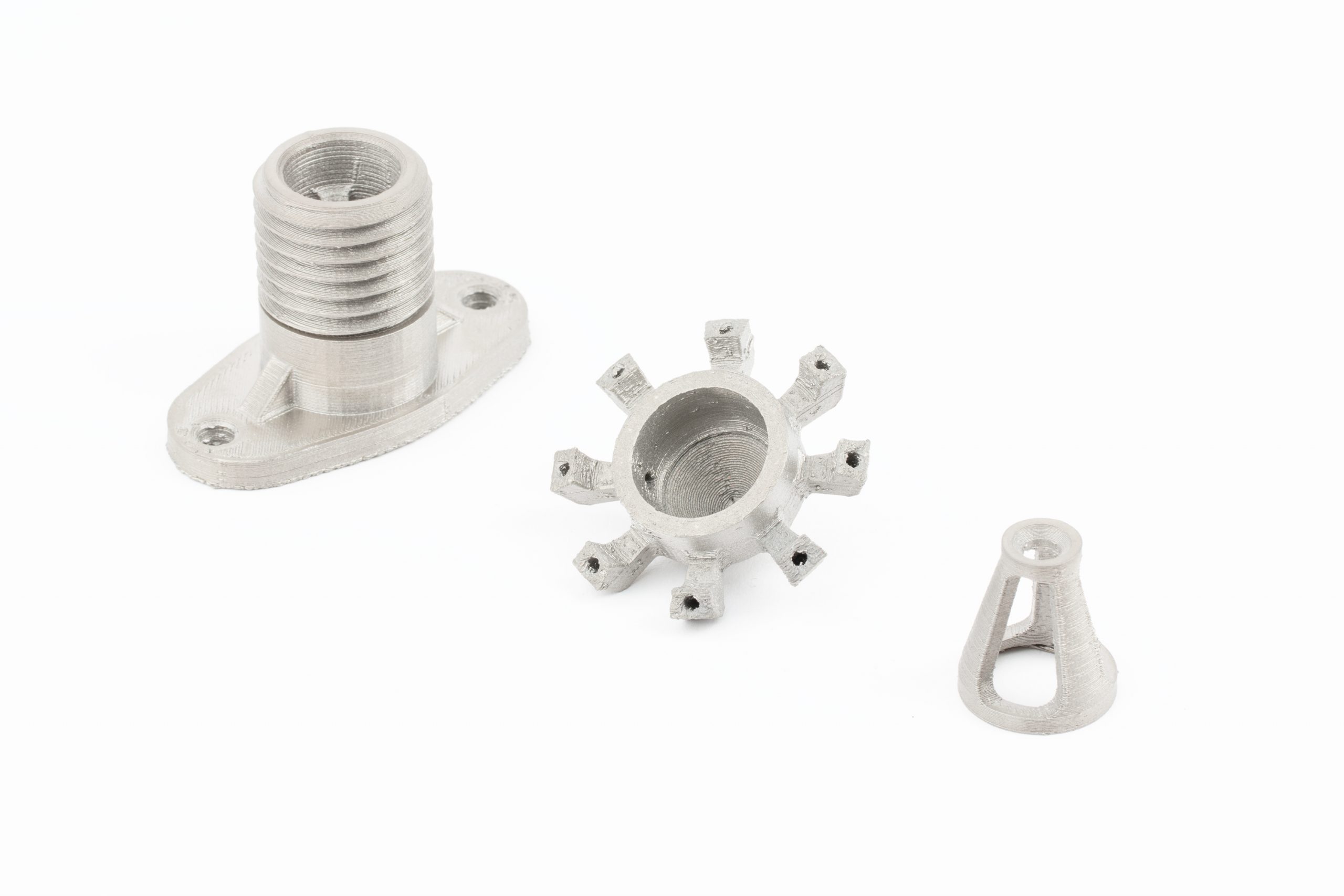Nominations for the 2021 3D Printing Industry Awards are now open, have your say who is leading the industry now.
3D printer manufacturer Desktop Metal has qualified the use of titanium alloy Ti64 for its Studio System 2 metal 3D printing platform.
Desired for its high tensile strength, corrosion resistance, and biocompatibility, Ti64 is the most widely used titanium alloy. The material is particularly suited for the production of high-performance metal parts within the aerospace, defense, automotive, oil and gas, and medical sectors.
Looking to begin shipping Ti64 next month, Desktop Metal is reportedly the first and only company to make the material commercially available for extrusion-based bound metal 3D printing technologies.
“Titanium has been a challenging material for bound metal 3D printing because it is both extremely reactive in powder form and difficult to sinter,” said Jonah Myerberg, Co-founder and CTO of Desktop Metal. “We are excited to be the first to commercialize the most common titanium alloy, Ti64, for 3D printing through our high-performance titanium parts.”

The Studio System 2
Launched in February, Desktop Metal’s Studio System 2 metal additive manufacturing platform is designed for the low-volume production of high-performance metal parts. The office-friendly system leverages the company’s proprietary Bound Metal Deposition (BMD) technology, and consists of a printer and furnace to simplify the in-house production of parts.
The technology eliminates loose powders and lasers often associated with metal 3D printing in favor of bound metal rod extrusion, which involves a metal powder with a polymer binder. The Studio System 2 is capable of fabricating parts with a variety of complex geometries, an excellent surface finish and high-performance mechanical properties.
In addition to its new qualification for Ti64, the Studio System 2 is compatible with 316L stainless steel, as well as all materials previously supported by its original extrusion-based Studio System. Currently, a broad portfolio of additional materials for the system is currently undergoing R&D, with new releases slated to roll out later this year.

Key applications of Ti64 3D printed parts
According to Desktop Metal, Ti64 metal parts printed on the Studio System 2 demonstrate excellent mechanical properties of 730 MPa yield strength, 845 MPa ultimate tensile strength, and 17 percent elongation. In fact, these properties exceed those set by ASTM F2885-17 standards for metal injection molded surgical implant applications, a key application for the material on the Studio System 2.
Desktop Metal has completed several use cases for printing with Ti64 on the Studio System 2, which it promotes as a more accessible platform over legacy powder bed fusion (PBF) machines. One such use case involves designing and printing a machine bracket in Ti64 with a gyroid lattice infill, in place of 17-4HP stainless steel. 3D printing the new design on the Studio System 2 reduces the part weight by almost 60 percent, while retaining the required functional strength and stiffness.
Another successful use case involved 3D printing small telescope focus rings that hold the lenses in place on a mobile telescope. The Studio System 2 was able to print six rings in Ti64 in less than 24 hours, a far quicker and cost-effective turnaround than conventional methods of manufacturing the rings for low-volume production which require investing in expensive tooling or custom fixturing.
The Studio System 2 also showcased how fabricating a drone coupling in Ti64 enabled significant weight reduction while maintaining the structural integrity required for the drone frame. The system is capable of producing between 15 and 25 drone couplings a week before moving it into mass production, all without the need for tooling or machining.

Affordable and lightweight components for aerospace
The final key application demonstrated by Desktop Metal’s Studio System 2 and Ti64 combination is fuel injector nozzles, which are critical for safe and reliable operations in the aerospace sector. Ti64 is an essential material for the fabrication of the nozzles, which need to be able to withstand extreme temperatures and pressures while remaining lightweight. The part also features internal channels that can enhance burner performance, but would be impossible to create using conventional manufacturing processes.
With the Studio System 2, engineers can test a variety of design iterations of the nozzle in a matter of days and print four versions of the nozzle in less than 24 hours.
“3D printing with titanium is incredibly valuable in industries like aerospace because of the material’s ability to support complex and lightweight designs,” said Steve Wozniak, Co-founder of satellite firm Privateer Space. “With the Studio System 2, the team at Privateer Space will be able to achieve the affordability and lightweighting capabilities needed to pave the way for our satellite design and launch.
“This technology is truly a differentiator in helping companies to accelerate innovations in space and, through the material advancements that Desktop Metal is making, we have an amazing opportunity to collaborate and keep space accessible for future generations.”
Having now qualified Ti64 for its Studio System 2, Desktop Metal will begin shipping the material to its customers in September 2021.
Nominations for the 2021 3D Printing Industry Awards are now open, have your say who is leading the industry now.
Subscribe to the 3D Printing Industry newsletter for the latest news in additive manufacturing. You can also stay connected by following us on Twitter and liking us on Facebook.
Looking for a career in additive manufacturing? Visit 3D Printing Jobs for a selection of roles in the industry.
Subscribe to our YouTube channel for the latest 3D printing video shorts, reviews and webinar replays.
Featured image shows (Left to right) Drone Coupling, Fuel Injector Nozzle, Telescope Focus Ring 3D printed in titanium on the Studio System 2. Photo via Desktop Metal.


